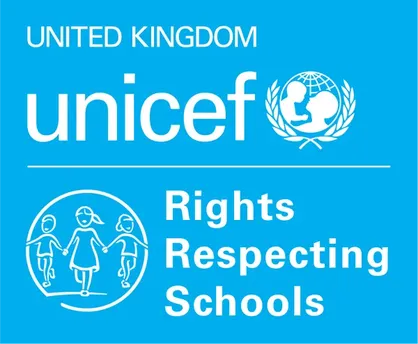At this school safeguarding and best interests of the child go hand in hand.
Jo Caswell, Lead Practitioner for PSHE 3-19, discusses how safeguarding and children’s rights intersect at this all-through school.
Safeguarding is everyone’s responsibility
All members of our school community know that safeguarding is everyone’s responsibility with a shared commitment to Article 3: best interests of the child. Safeguarding is evident throughout school life from displays in corridors and classrooms through to assemblies and tutor time activities, staff training and the PSHE education programme. Pupils understand the role our safeguarding systems have in protecting and promoting their rights. They tell us they feel safe at school and are given opportunities to develop the skills to keep themselves and others safe now and in the future.
From KS1 to KS5, the PSHE education programme has been linked to the Convention on the Rights of the Child. Pupils explore the themes of healthy lifestyles, relationships and living in the wider world developing their understanding, and skills of critical thinking, empathy, assessing risk, accessing support and expressing their opinion as appropriate to their age and stage. In lessons young people explore sources of support in school, locally and nationally. They debate the advantages and disadvantages of different types of support and practice accessing support, how to start the conversation and support a friend.
Student leadership and links to safeguarding
Our commitment to pupil engagement and Article 12, respect for children’s views, is evident through the extensive student voice and leadership opportunities across the school. At our school an emphasis is placed on providing an environment where children and young people know that their actions can make a difference, that their views matter and are valued in developing a shared sense of community and belonging.
Students are involved in developing and reviewing school policies, meeting with the Senior Leadership Team and Governors to discuss school systems and raising awareness of a range of rights issues. In recent years students have successfully campaigned on school issues such as food in school, new water fountains and to reduce single use plastics. They have also raised awareness of national and international issues including children’s mental health, domestic violence and challenging discrimination.
Students in leadership roles receive training and support to contribute to a safe learning environment. Peer mediators and the mental health ambassadors are available to mentor students in and outside the classroom. Students genuinely care about equality and rights; they recognise their role in ensuring all members of our community are treated with respect and dignity.
Strengthening safeguarding practice
Listening to students has been key to strengthening safeguarding. Asking for student’s feedback and ideas means they are invested in making new initiatives work, they spread awareness and challenge misconceptions. Students tell us they value the worry boxes they requested in the primary phase where students can share anything that is causing them concern, and secondary students use the online ‘Confide’ system to contact the safeguarding team.
We have found students really appreciate opportunities to develop their ideas. Last year while reviewing the Anti-Bullying Policy students in the secondary phase started to explore whether all students understood what it meant to be an ‘upstander’ and developed the school’s Active Bystander programme ‘SAFE’. Students developed posters and assemblies to raise awareness of “Spot it, Act on it, Find help, Expect respect” and the teaching resources developed have been embedded into the PSHE and pastoral programme. Emphasising with students the life skills and character attributes they are developing while contributing to student voice activities and leading projects has also seen students making links to their future careers and aspirations.
Acting on, celebrating and rewarding the impact students’ views have means that students talk to us more. In a climate where the news locally, nationally and internationally can be worrying for young people, pupils talk to us about their concerns and have confidence that when they suggest ways in which they can be supported that they will be listened to. This means that staff are better prepared to support and meet the needs of our students.
School context: Eastbury Community School is a larger than average, 3-19 comprehensive, community school in Barking, East London. The school’s deprivation indicator is high, as Barking and Dagenham is one of the most deprived Boroughs in London. Currently, 30% of students are in receipt of free school meals. ECS is ethnically and culturally diverse with over 70 languages spoken. 12.5% of students have a SEND profile.



